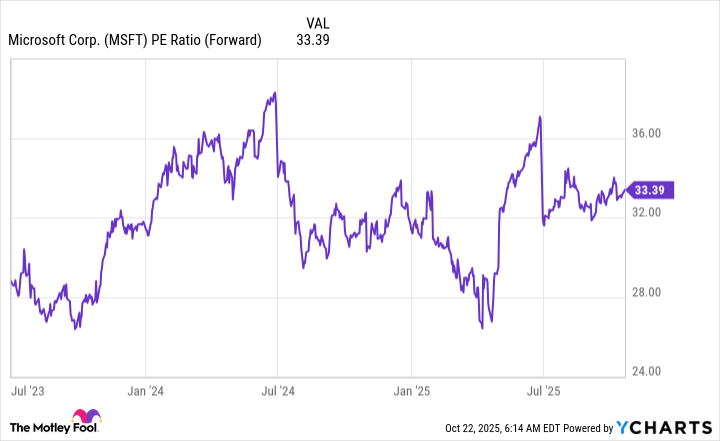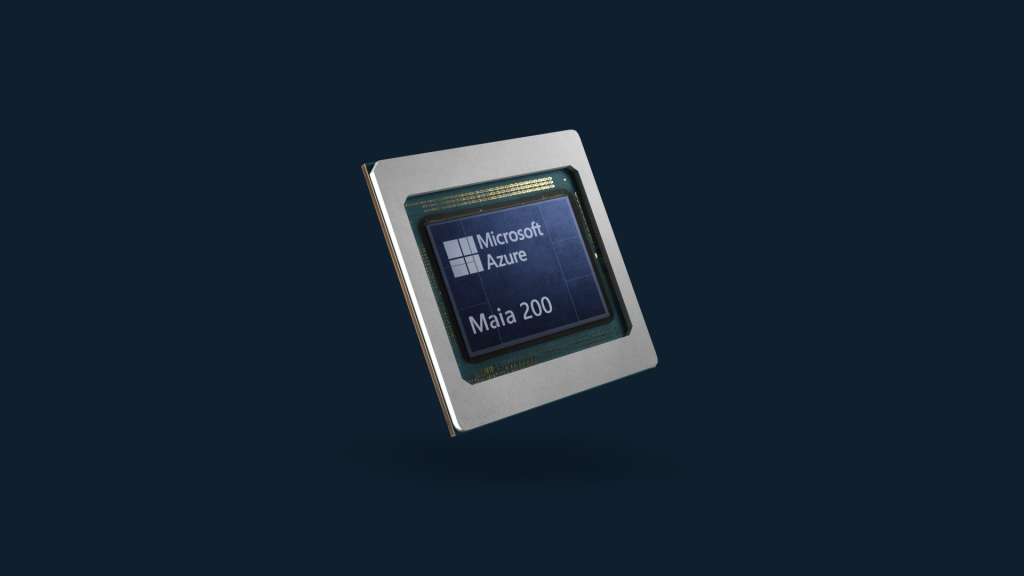Microsoft (MSFT +0.51%) stock doesn't have the cheapest price in the world, at about $500 per share. While stock splits have become less important in recent years, thanks to the rise of fractional shares, they're still important for those who don't have access to fractional shares and for options strategies.
Additionally, Microsoft is a member of the Dow Jones Industrial Average (^DJI +0.02%). Unlike other indexes that are market-cap weighted, the Dow Jones index is price-weighted. As a result, companies included in this index must maintain a stock price similar to their peers'.
Microsoft is the third-largest component in the Dow Jones, with only Goldman Sachs (GS +0.73%) and Caterpillar (CAT +0.68%) having more expensive stock prices. This could trigger Microsoft to announce a stock split so that it isn't forced to do it at a time it may not want to. So, will Microsoft announce a stock split on Oct. 29?

Image source: Microsoft.
Microsoft has a long history of stock splits
Unlike some companies that have split their stocks a few times or never, Microsoft has gone through several. The most recent was in 2003, although it has split its stock a total of nine times. A stock split has been a long time coming for Microsoft, and there is new management at the helm, so looking at past trends for when these splits were implemented is no help for investors attempting to predict what happens next.

NASDAQ: MSFT
Key Data Points
So, the official answer is that Microsoft could announce a stock split on Oct. 29, when it releases first-quarter fiscal year 2026 (ending Sept. 30) earnings. However, there's no guarantee that it will. Even if Microsoft doesn't announce a stock split, there could be some news that triggers a positive reaction in the stock price.
Microsoft's fiscal fourth quarter was excellent
The last time we heard from Microsoft, it delivered strong results that investors loved. Revenue rose 18% year over year to $76.4 billion, with diluted earnings per share (EPS) increasing 24%. Those are solid results from any company, let alone one of the largest in the world.
One key item investors will need to watch during its Q1 FY 2026 announcement is the continued growth of its cloud computing business, Microsoft Azure. Azure has seen a huge amount of demand due to the artificial intelligence race. Most companies can't afford to build their own AI data centers, so they rent out computing power from Microsoft. Cloud computing has been an excellent business for Microsoft, and it's a huge reason why the stock has been successful over the past decade.
Unfortunately, Microsoft doesn't break out its sectors individually, although we know that Azure delivered 39% revenue growth in Q4. The division that Azure is a part of, Intelligent Cloud, saw revenue rise 26% to $29.9 billion, highlighting how big a deal cloud computing is to Microsoft.
For Microsoft's stock to continue to be successful, this growth needs to keep up the pace. Microsoft's other business units also posted strong Q4s, so companywide excellence is needed to keep Microsoft's strong run going. Since 2025 began, Microsoft's stock has risen over 20%. That lags some of its big tech peers' performances, so does Microsoft have enough to turn it around?
One thing Microsoft has going for it is that it hasn't become an incredibly expensive stock. At 33 times forward earnings, it isn't cheap, but it's not quite as expensive as some of its peers.
MSFT PE Ratio (Forward) data by YCharts.
So, is Microsoft a buy before earnings? I'd say investors should be patient with this one. Microsoft still needs to grow into its valuation, as it isn't cheap. So an amazing Q1 report could be met with muted reactions from the market, because it's what was expected. There are high expectations for Microsoft, and this could cause issues with future returns down the road. However, a stock split announcement could send the stock soaring, but that isn't guaranteed.
Several other big tech stocks are either cheaper with similar growth rates, or similarly priced with faster growth rates. This places Microsoft in an awkward middle position. I think that investors have better options out there than Microsoft right now.







